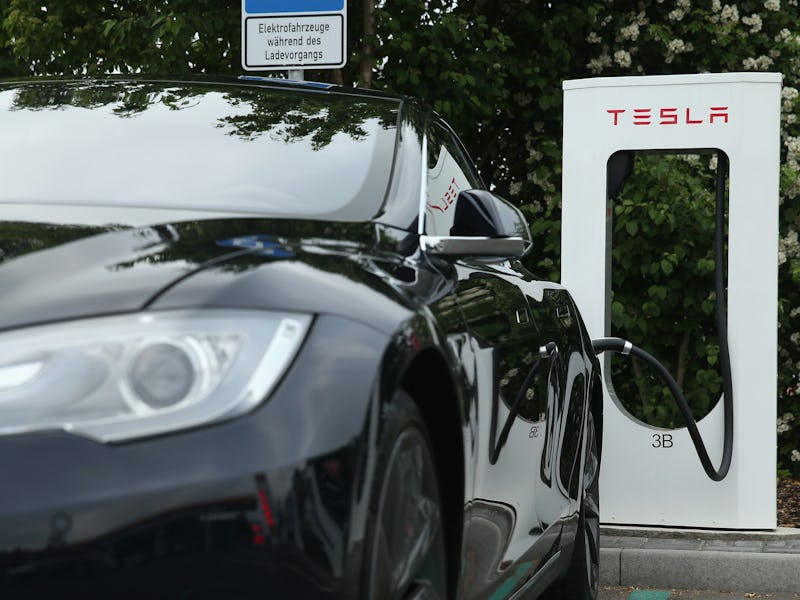Shell's Gas Station Chargers Will End Tesla Range Anxiety

Shell, one of the largest oil and gas companies in the world, is planning a big change in how it fuels up cars — and it’s going to make Tesla owners very happy. The company announced that it will bring electric car chargers to its gas stations, starting with the UK and Netherlands later this year, the two countries that host its global operations. The plan will give a welcome boost to electric car makers like Tesla, who struggle to overcome consumer’s “range anxiety” — or the fear that an electric car will leave them stranded with a dead battery.
It might seem like an odd move for an oil giant, but as more electric cars come onto the road, Shell sees the chargers as a business opportunity to sell more snacks. “We have a number of countries where we’re looking at having battery charging facilities,” John Abbott, Shell director of downstream business, told the Financial Times in a story published Sunday. “If you are sitting charging your vehicle, you will want to have a coffee or something to eat.”
It’s a welcome stop-gap, but in the future, car makers may have to find other ways to solve the charging issue. Sitting in a forecourt like the one below while your car charges isn’t a particularly attractive idea, especially considering how filling a car with gas takes a matter of minutes:
Have a snack and wait for your car to charge at forecourts like these.
In the early days of Tesla, the company considered a battery swap system. Drivers would turn up at gas stations, swap out their battery with a fully-charged one, and hop on their way. Sounds great, until you remember batteries are susceptible to wear-and-tear, and a swap that takes a couple of minutes could leave you with a significantly worse component.
Another option is wireless car chargers. Ford announced last month plans to build wireless charging into its U.S. and Europe cars, which would mean no fiddling around with cords and cables, with a future option for cities to open up wireless charging lanes to top up as you drive. Sounds great, until you remember it means spending money on all-new infrastructure.
The advancement that’s likely to make the most difference is better batteries. Samsung has produced an electric car battery that can power a car for nearly 400 miles on a single charge. The battery can also charge in under 20 minutes with the right conditions. Advancements like these mean we’ll still have to wait around at Shell garages while the car charges, but it’ll be a bit less agony-inducing.